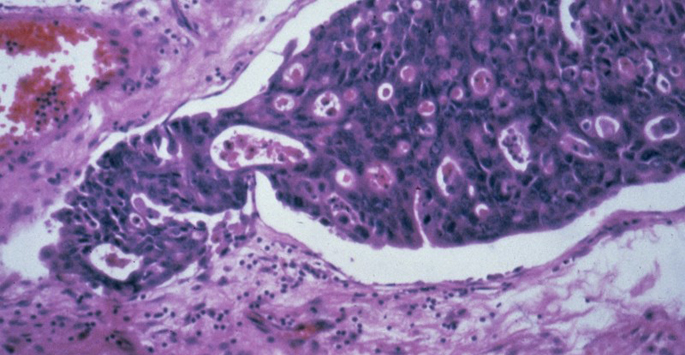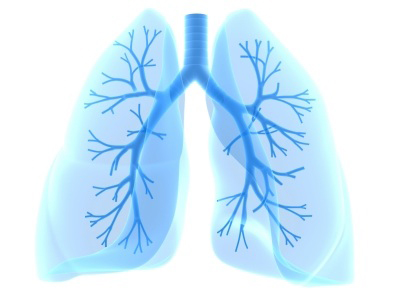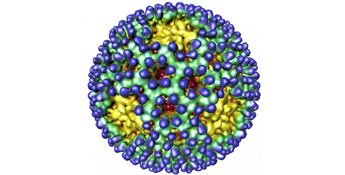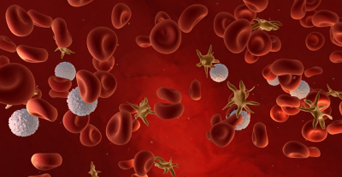NIH
-

A drug combo for ovarian cancer
Combining another drug with platinum-based chemotherapies may be more effective against ovarian cancer. Read MoreDec 24, 2012
-

Low prenatal alcohol’s brain impact
Even relatively low levels of in utero alcohol exposure impact fetal brain development, and the effects last into adulthood, study finds. Read MoreDec 21, 2012
-

Cancer markers from archived tissue
Archived tissue samples are yielding new disease biomarkers. Read MoreDec 20, 2012
-

Genes, nutrients interact to shape traits
A new study identifies interactions between genes and nutrients that may participate in determining levels of cholesterol and triglycerides. Read MoreDec 12, 2012
-

Genetic clues to lung scarring
A rare genetic syndrome provides new clues to lung scarring (pulmonary fibrosis), a potentially deadly consequence of many lung diseases. Read MoreDec 10, 2012
-

Polarity protein suppresses tumor growth, invasion
The machinery that builds the characteristic shape of epithelial cells suppresses breast cancer formation and metastasis in a mouse model. Read MoreNov 29, 2012
-

Carcinogenic chemicals cramp DNA
Researchers have determined how a DNA lesion caused by exposure to chemicals may spark cancer formation. Read MoreNov 21, 2012
-

Bird’s eye view of gut development
A new map of the developing gut of quail offers valuable tool for studying intestinal diseases. Read MoreNov 19, 2012
-

Green tea for failing hearts?
The main antioxidant compound in green tea increases contractile force in isolated heart cells, suggesting it may be useful in heart failure. Read MoreNov 16, 2012
-

Study tracks antioxidants’ role in prostate tumor growth
Antioxidants promote cell growth in a mouse model of prostate cancer, Vanderbilt researchers report in the journal PLoS ONE. The findings provide insight into the recent controversy regarding antioxidants and prostate cancer prevention. Read MoreNov 15, 2012
-

Inherited lung disease no worse in offspring
An inherited lung disease does not appear to have earlier onset and increased severity – a phenomenon called genetic anticipation – in successive generations. Read MoreNov 15, 2012
-

Study seeks new ways to help teens manage type 1 diabetes
Shelagh Mulvaney, Ph.D., assistant professor of Nursing, leads a national team of researchers, engineers and designers that recently landed a $1.8 million federal grant to identify new ways to teach critical problem-solving skills to teenagers with type 1 diabetes using an Internet and mobile phone-based system. Read MoreNov 8, 2012
-

Kidney woes during heart failure
Levels of the protein NGAL may be a good predictor of worsening kidney function in patients with acute heart failure. Read MoreNov 8, 2012
-

Brain study provides new insight into why haste makes waste
A new study demonstrates how the brain follows Ben Franklin’s famous dictum, “Take time for all things: great haste makes great waste.” Read MoreNov 7, 2012
-

Bacterial signals in sarcoidosis
Study adds evidence for infectious agents’ role in sarcoidosis, an inflammatory condition that can lead to respiratory failure and death. Read MoreNov 6, 2012
-

Toxin provides endometriosis clues
Environmental toxins may contribute to endometriosis-related infertility by disrupting endometrial response to progesterone. Read MoreNov 2, 2012
-

Protein’s length, flexibility key to infection
The structural architecture of the reovirus attachment protein is required for efficient reovirus infection of host cells. Read MoreOct 31, 2012
-

VUCast: Wearable Robot
This Week on VUCast, Vanderbilt’s online newscast: Amazing Vanderbilt research you have to see to believe! How this “wearable robot” helps paraplegics walk! How winning a football game could influence who wins the presidency. [vucastblurb]… Read MoreOct 31, 2012
-

CNN: Fiscal cliff ensnares science and research
Pampee Young, associate professor of pathology, microbiology and immunology, is one of many U.S. scientists whose research funding will be compromised by the impending enactment of the Budget Control Act (the "fiscal cliff") if Congress does not resolve the budget impasse. Read MoreOct 29, 2012
-

Bid protein guards blood cells against stress
A protein normally known to promote cell death found to encourage survival of blood forming cells. Read MoreOct 25, 2012